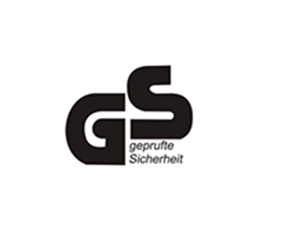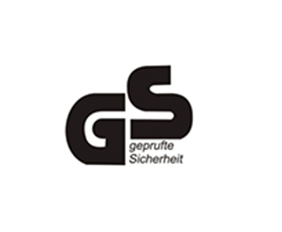

Certification items: GS certification

GS means "Geprüfte Sicherheit" in German (safety has been certified), and it also means "Germany Safety". GS certification is a voluntary certification based on the German Product Safety Law (GPGS) and tested in accordance with the European Union standard EN or the German industrial standard DIN. It is a recognized German safety certification mark in the European market.
Certification scope
1. Household appliances, such as refrigerators, washing machines, kitchen appliances, etc.
2. Household machinery.
3. Sports goods.
4. Household electronic equipment, such as audio-visual equipment.
5. Electrical and electronic office equipment, such as copiers, fax machines, paper shredders, computers, printers, etc.
6. Industrial machinery, experimental measurement equipment.
7. Other safety-related products such as bicycles, helmets, ladders, furniture, etc.
German GS certification introduction
The meaning of GS is German "Geprufte Sicherheit" (safety has been certified), and it also means "Germany Safety" (German safety). GS certification is a voluntary certification based on the German Product Safety Law (SGS) and tested in accordance with the European Union standard EN or the German industrial standard DIN. It is a recognized German safety certification mark in the European market.
The GS certification mark indicates that the safety of the product has been tested by an independent organization with credibility. Although the GS certification mark is not a legally mandatory requirement, it does make the manufacturer subject to strict German (European) product safety laws when the product fails and causes an accident. Therefore, the GS certification mark is a powerful market tool that can enhance customers' confidence and desire to purchase. Although GS is a German standard, most European countries agree. And while meeting the GS certification, the products will also meet the requirements of the European Community's CE mark. Unlike CE, the GS certification mark has no legal requirements, but because the safety awareness has penetrated into ordinary consumers, an electrical appliance with GS certification mark may be more competitive than ordinary products in the market. CB certification
Products that can apply for GS certification:
Household appliances, such as refrigerators, washing machines, kitchen appliances, etc.
Household machinery.
Sports goods.
Household electronic equipment, such as audio-visual equipment.
Electrical and electronic office equipment, such as copiers, fax machines, paper shredders, computers, printers, etc.
Industrial machinery, experimental measurement equipment.
Other safety-related products such as bicycles, helmets, ladders, furniture, etc.
The standard used in GS certification is the corresponding EN safety standard of the European Union.
GS certification is more stringent than CE certification (LVD certification). There are factory inspections and annual inspections, while CE-LVD does not require factory inspections and annual inspections.
effect
The GS mark indicates that the safety of the product has been tested by an independent organization with credibility. Although the GS mark is not a legally mandatory requirement, it does make the manufacturer subject to strict German (European) product safety laws when the product fails and causes an accident. Therefore, the GS mark is a powerful marketing tool that can enhance customers' confidence and desire to buy. Although GS is a German standard, most European countries agree. And while meeting the GS certification, the products will also meet the requirements of the European Community's CE mark. Unlike CE, there is no legal requirement for the GS mark, but because the safety awareness has penetrated into ordinary consumers, an electrical appliance with the GS mark may be more competitive than ordinary products in the market.
400-088-6233
Email: bctc@bctc-lab.com.cn
Guangdong Headquarters Laboratory Address: Building B, Pengzhou Industrial Park, Fuyuan Road, Zhancheng Community, Fuhai Street, Baoan District, Shenzhen
Shenzhen Branch Laboratory Address: Pengyuan 1 Building, No. 18, Lilang Road, Lilang Community, Nanwan Street, Longgang District, Shenzhen